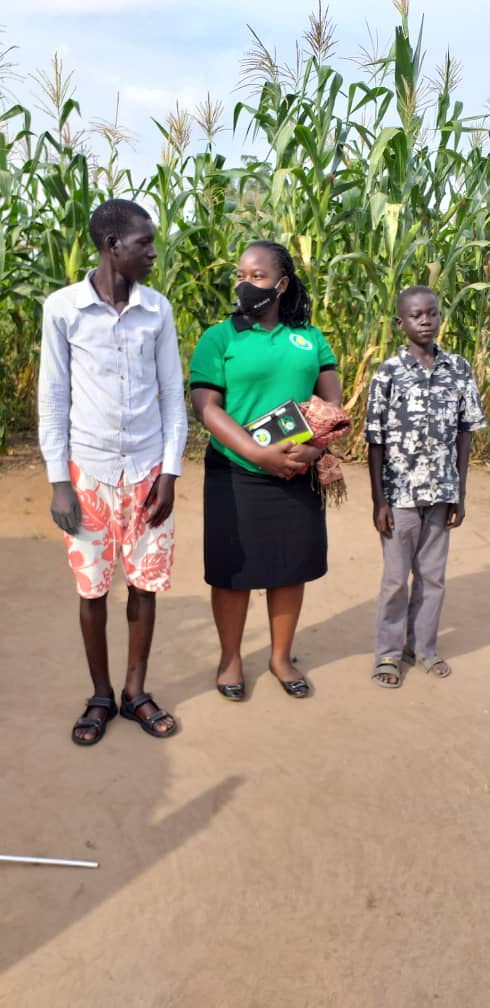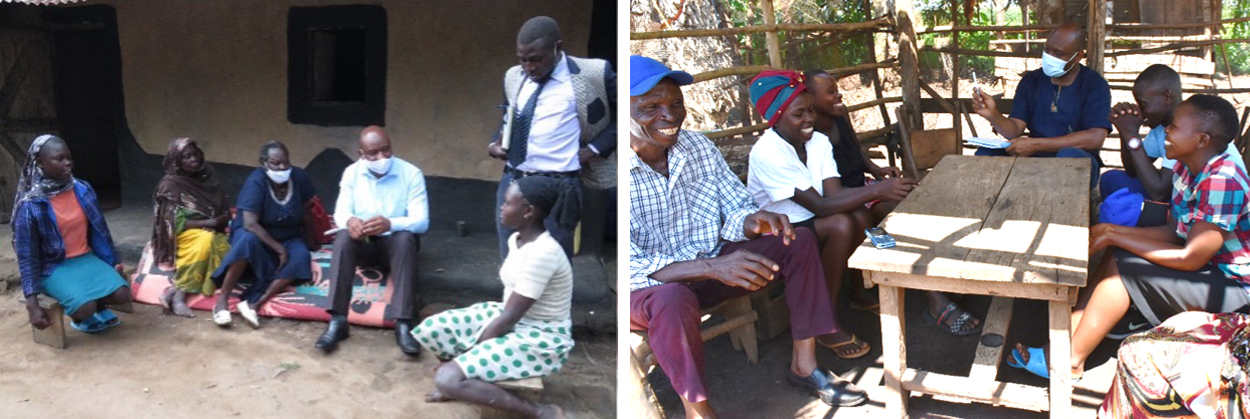Program
Program Components
The Road to Hope program provides holistic support for the children enrolled in it. It’s administered by the staff of the Palliative Care Association of Uganda (PCAU) who work with schools administrators, teachers, extended family members, social workers, volunteers and others to make sure the children’s educational, medical, emotional and social needs are met.
 PCAU works with children and their guardians to determine the best school to place the child – one which meets their needs and provides a supportive environment. Due to the COVID-19 pandemic, schools in Uganda have been closed for large parts of 2020 and 2021. The government is currently making a push to get more teachers and school support staff vaccinated, and children will resume in-person learning in January 2022. During the school shutdowns, the Road to Hope children have been supported by PCAU to access learning materials and homeschooling support.
PCAU works with children and their guardians to determine the best school to place the child – one which meets their needs and provides a supportive environment. Due to the COVID-19 pandemic, schools in Uganda have been closed for large parts of 2020 and 2021. The government is currently making a push to get more teachers and school support staff vaccinated, and children will resume in-person learning in January 2022. During the school shutdowns, the Road to Hope children have been supported by PCAU to access learning materials and homeschooling support.
The children are also supported by regional palliative care nurses (along with support from other staff, drivers and volunteers). These amazing people first identified many of our RTH children in the community and then worked with PCAU to enroll them in the program. In addition to their nursing duties, these palliative care nurses regularly help PCAU monitor the progress and well being of the children. They work with PCAU in coordinating a child’s return to-and-from school, they provide medical and psycho-social support for the children and are an essential part of the social support team for the children. During the COVID-19 lockdown, these palliative care nurses are crucial to staying connected with the RTH children!
Home Visits
PCAU regularly visits the children’s homes to obtain updates from the children’s guardians about their wellbeing. These visits also help the children feel supported psychosocially when they’re not in school. Psychosocial evaluations of families are done to ensure that children are supported and to provide continued counselling for them and their families.

Road to Hope Camp
Although the COVID-19 has required modifications to the Road to Hope program’s yearly camp, one of the highlights of the children’s year is gathering together for fun and enrichment activities.
Empowerment Retreat
Without a parent to guide them, older students need guidance to navigate relationships, finances, decision making and other life skills. These two-day retreats give students tools to move out of the program and into adulthood.
School Visits
The PCAU team regularly visits children at the their schools to monitor their progress and well being. During the COVID-19 pandemic, PCAU arranged for homeschooling support by providing educational materials and tutoring (if needed).
Roles
Numerous palliative care programs refer and support children in the program. With their help, PCAU has outlined the following set of responsibilities for those who are engaged in the program:
Guardians
Most children in the Road to Hope program live with extended family when they’re not in school. These family members are typically the child’s legal guardians. However, they may be an older grandparent or a relative with other children to care for. The Road to Hope program asks them to:
• Provide health/medical care for the children (PCAU provides support in extenuating circumstances).
• Ensure good discipline of children; they are expected to discipline children in cases of bad behavior.
• Provide counselling to children to encourage them to achieve their goals.
• Provide food and clothing (excludes school uniforms).
• Provide parental love.
• Visit children at school to follow up on their performance and behavior.
• Assist (as possible) with fees for children’s schooling, especially for children in the boarding section.
PCAU
• Provide school fees and scholastic materials.
• Provide counseling and career guidance.
• Provide uniforms.
• Provide transportation and pocket money for RTH beneficiaries in the boarding section.
• Provide medical treatment in emergencies or other extenuating circumstances.
• Coordinate schools and community
• Discipline the children as necessary.
• Provide education.
• Feed children while at school.
Challenges
• Transportation – many of the children reside in remote villages throughout the country. This sometimes requires overnight travel and hiring motorcycles commonly known as “boda bodas” to transport them to school and back home.
• Documentation – many of the children on the program did not receive birth certificates when they were born. PCAU works with their guardians to obtain these as they are required by schools and other organizations.
• Appropriate educational settings – PCAU identifies schools with a supportive learning environment for some of the children in the program who are experiencing challenges.
• Abusive environments – some children are mistreated in their home settings, which is addressed by working closely with the probation and human rights officers in districts to see that children have their rights observed in their home and school environments. These officers use an approach of educating and counseling families and teachers.
• Stigmatization – PCAU uses school sensitization sessions to help teachers and staff understand life-limiting illnesses in order to address/reduce the issue of stigma and discrimination.
• Adequate social/psycho support – PCAU regularly follows up with school visits to understand and support the children in their educational and emotional progress.
• Medical care – for children with life-limiting conditions, particularly HIV/AIDs, PCAU provide monitoring and follow up on ARV medication, other treatments.
